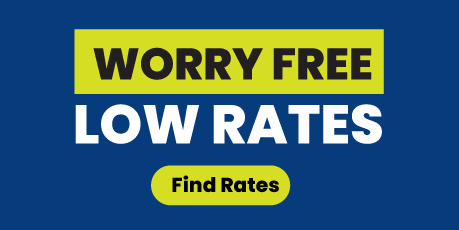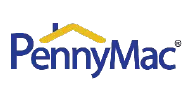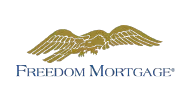What Is Fannie Mae And How Can FNMA Loans help me?

What Is Fannie Mae and how can FNMA Loans benefit You?
Are you looking for a house, thinking about refinancing your current home, or staying up-to-date with housing news? Well then you've likely encountered Fannie Mae (also known as the Federal National Mortgage Association). You may know that this organization has an important influence on the real estate market, though perhaps not completely understand its operations.
When it comes to your mortgage options and selecting a mortgage, Fannie Mae may be one of the options available to you. Although there are other providers in the market, understanding how investors like Fannie Mae work is essential for gaining insight into both the housing industry and the process involved with acquiring a mortgage.
Who Is Fannie Mae?
Fannie Mae is one of two government sponsored enterprise (GSE) which works to provide liquidity in the mortgage markets and keep housing costs manageable by providing an access point for mortgage lenders to sell their mortgage loans in the secondary mortgage market. Freddie Mac, another GSE, performs the same service as Fannie Mae, and provides a steady supply of funds to the residential mortgage market.
Fannie Mae achieves this by buying mortgages from smaller banks or credit unions, and then selling them to other investors who want to buy mortgages as a source of income from the interest payments in the secondary mortgage market.
When Fannie Mae buys and sells these mortgage loans in what is called the secondary mortgage market investors, this process give banks and mortgage lenders the ability to raise more money to issue more home loans.
It is through this increase in liquidity, mortgage lenders have the ability to issue mortgage loans upon request. Most mortgage companies, banks and lenders like selling mortgages, to raise more money to issue more loans.
Therefore, Fannie Mae indirectly makes more funds available for loan applicants and increases access to affordable housing and homeownership opportunities.
History Of Fannie Mae
Since its inception by federal government in 1938, Fannie Mae was established by Congress as a Government Sponsored Enterprise (GSE), with the intention of providing cost-effective affordable housing.
Prior to Fannie Mae's introduction into the market, obtaining mortgages meant making large unaffordable down payments that could potentially reach as high as 55%.
Prior to the creation of Fannie Mae, if a homeowner missed one or two mortgage payments their home would be foreclosed.
These high down payment requirements and rigid underwriting guidelines placed unreasonable demands on new homebuyers.
Since its inception, the Federal National Mortgage Association, Fannie Mae, has grown impressively and experienced a few hiccups along the way.
In 1968, Congress gave the green light to issue stocks to gain investments from shareholders, thus making it a private company solely funded by stock and bond markets.
Unfortunately, in the late 2007 due to an unpredictable economy coupled with a real estate market crash, Fannie Mae was sustained two years of significant financial losses.
Despite the sustained losses stemming from the 2007 mortgage market crash, Fannie Mae continued to perform for the secondary mortgage market that most banks and lenders rely upon.
Fannie Mae was placed under the direction of the Federal Housing Finance Agency (FHFA). Consequently, Fannie Mae shares were removed from both New York and Chicago stock exchanges in mid-2010.
To ensure that Fannie Mae had financial support when needed, as part of this agreement FHFA purchased preferred stocks to back up this esteemed organization. Don't miss out on your moment! Now is your opportunity to see what you can take advantage of with this extraordinary arrangement and unlock potential for those who qualify!
What are the benefits of Fannie Mae (FNMA) Loans?
Have you ever wondered how Fannie Mae helps make mortgage loans available in the mortgage market? How do borrowers get mortgages?
Fannie Mae, the Federal National Mortgage Association, provides a stable supply of money to the mortgage markets. By stabilizing the access to credit for first time homebuyers or repeat buyers, home prices remain predictable and appreciate year over year on average.
Even when interest rates are high, demand for mortgage backed securities increases in the secondary mortgage market and creates additional liquidity in the Nation's housing finance system.
Fannie Mae does not originate loans themselves. Instead, banks and mortgage lenders like EquiFund Mortgage® are responsible for collecting applications from customers while verifying their income, assets, credit history and property value in order to underwrite the mortgage loans. After the closing of a loan meets all its requirements, Fannie Mae will buy these loans from its lender partners.
Fannie Mae county loan limits
The Federal Housing Finance Agency (FHFA) sets limits for Fannie Mae's conforming loans (also known as, Conventional mortgages), which are the loans backed by and guaranteed by the agency as long as each loan satisfies the Fannie Mae underwriting guidelines.
Conventional loans, also known as conforming loans have mortgage insurance (PMI) when the loan to value exceeds 80%. This means that if the loan amount exceeds 80% of the value of the home, homeowners and buyers will be required to pay conventional mortgage insurance.
Mortgage loans that are underwritten under Fannie Mae underwriting guidelines then sold as a Mortgage Backed Securities (MBS), offering investors full compensation from the interest these loans earn. These MBSs are made available on public bond markets to ensure access to all interested parties.
Mortgage Backed Securities typically include 1,000 or more loans with analogous qualities. Fannie Mae has stringent regulations in place – including a ban on non-conforming loan purchases.
There are many components that can make a loan not compliant with their standards, one of the most frequent being jumbo home loans; for 2022 this denotes any mortgage amount over $726,200 for solitary dwellings located outside of high-cost regions.
Fannie Mae Loan approvals
If ever in doubt about your eligibility for affordable housing loans offered through Fannie Mae loan, reach out to one of our Home Loan Experts. However, as an initial guidebook you can refer to the following general criteria:
-
Credit scores: To qualify for Fannie Mae or Freddie Mac (FHLMC) loans, you'll need to have a minimum qualifying FICO® Score of 620. It's also essential to know that if there are two applicants on the mortgage, then your qualifying credit score is determined by taking the average median between all three major credit bureaus – Experian™, Equifax®, and TransUnion®. This feature is exclusive to Fannie Mae loan applications!
-
Debt-to-income ratio (DTI): Generally, the Debt-to-Income (DTI) ratio should not exceed 50% when applying for a Fannie Mae loan. Depending on individual conditions, this number may need to be even lower.
-
Down payment: If you're looking to purchase a primary residence that is one unit, the down payment could be anywhere from 3% - 5%. However, if your intent is to obtain investment properties or second homes, then expect higher down payment requirements.
-
Reserves: Reserves signify the number of mortgage payments that lenders want to observe in your account if you come across a loss of revenue or other financial hardship. Although 2 months is usually sufficient, Fannie Mae loans may require up to 6-month reserves.
Fannie Mae Mortgage Programs
From home buyers to renters, to mortgage borrowers, Fannie Mae has a wide range of programs specially designed to benefit all. As one of the leading mortgage investors in the market today, they are committed to improving financial stability for everyone.
HomeReady®
Are you a first-time or repeat homebuyer looking for the perfect mortgage? Look no further than HomeReady® - with as little as 3% down, you can purchase your dream house, refinance to reduce your rate and/or revise the term of your loan. Unlock existing equity today!
Fannie Mae offers a loan option for those with low-to-moderate incomes, limiting their combined income to no more than 80% of the area median. Those who seek an alternative have access to another 3% down payment plan which does not impose any income limits - though at least one borrower on the loan must be a first-time home buyer.
HomePath
HomePath® is the place that Fannie Mae showcases foreclosures, otherwise known as Real Estate Owned (REO) properties. When buying a foreclosure property, you must be aware of what lies ahead since they are generally sold in their existing condition and sometimes need some repairs. Nevertheless, there may be an opportunity to acquire it at a bargain.
RefiNow™
With the RefiNow™ program, homeowners who have been unable to meet the stringent requirements for a mortgage refinance can now find relief. The threshold for debt-to-income and home equity is more flexible through this program, allowing low income households to benefit as well.
In order to qualify with RefiNow™, applicants must see a decrease in their interest rate of at least half a percent and an overall reduction in their monthly mortgage payment amount. The RefiNow™ program offers many advantages, including a $500 credit toward an appraiser if necessary. Now is the time to take advantage of this exclusive offer and refinance your home!
When qualifying for RefiNow™, credit scores from the lowest median FICO® Score will be used regardless of how many people are included on the loan. It's essential to consider that this credit score must be 580 or higher.
Mortgage assistance for Fannie Mae Loan holders
If you are having difficulty meeting your monthly mortgage payment, Fannie Mae-owned loan holders have access to the Mortgage Help Network program. This facilitates a conversation between homeowners and a Department of Housing and Urban Development housing counselor, where they can look at various options available for assistance. Rocket Mortgage clients facing or likely to face issues with their payments can contact us through our Application for Success form -- we are here to help!
Tenant of a Fannie Mae foreclosed home
Are you a tenant in a property owned by Fannie Mae that is currently going through foreclosure? If so, the Tenant-In-Place program could help keep you living there and paying current market rates. Depending on your particular circumstances, either your existing lease can be preserved or an entirely new agreement may be offered - including month to month leases as well as those predetermined for specific terms of investment property.
Summary of Fannie Mae
Fannie Mae is a necessary component to a robust housing market. This is because Fannie Mae has an open door for mortgage lenders who are looking to sell their loans to raise funds to issue new loans.
Under Fannie Mae underwriting guidelines, many homeowners and home-buyers can qualify for better lending terms, lower down payments and more competition from multiple mortgage lenders. If you are looking for a mortgage loan, than consider calling EquiFund Mortgage, a full service multi lender mortgage service provider who guarantees the lowest rates and fee mortgage loans.







